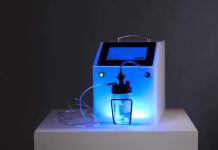The Marie Skłodowska-Curie Actions (MSCA) remain a vital component of the European Union’s research and innovation ecosystem
According to the European Commission’s interim evaluation of the Horizon Europe program, MSCA continues to deliver strong results by supporting scientific excellence, encouraging researcher mobility, and strengthening institutional capacity across Europe.
Encouraging research excellence early in the project cycle
Despite most projects from the 2021 and 2022 calls having only recently started, MSCA already accounts for 5% of all peer-reviewed publications under Horizon Europe.
This early productivity shows the program’s ability to deliver scientific output swiftly and effectively, even during the early phases of research.
A standout feature of MSCA is its bottom-up design, which allows researchers to define their agendas and focus on fundamental research. This autonomy, paired with the program’s interdisciplinary and cross-sectoral mobility opportunities, makes it especially appealing to researchers at various stages of their careers.
Improving career prospects and skills development
Under Horizon Europe, MSCA is set to benefit 65,000 researchers, including 25,000 PhD candidates. Over 8,300 researchers had already been recruited at the time of the evaluation. Participation in MSCA has proven to significantly enhance career development, improve job prospects, and provide researchers with access to high-quality supervision and training environments.
The program’s benefits extend beyond individual researchers. Participating organisations report improved salary conditions and more stable contracts for their staff.
This contributes to greater institutional competitiveness and international visibility. MSCA funding also encourages the development of support structures and deepens collaboration with leading research institutions across Europe.
MSCA’s ability to adapt to global challenges is also evident in its response to the war in Ukraine. Through the MSCA4Ukraine initiative, the program provided crucial support to displaced Ukrainian researchers, enabling them to continue their work safely at institutions across the EU and associated countries.
Strong demand for a highly competitive program
With a success rate of just 16%, MSCA remains a highly competitive funding scheme. The high number of strong proposals submitted underlines the significant demand for support. Experts estimate that to fund all high-quality proposals, the MSCA budget would need to increase sixfold, up to €38 billion.
MSCA also leads the way in promoting gender equality. Women make up 45% of researchers supported by the program, which is significantly higher than the Horizon Europe average (38%) and the overall EU share of women researchers (34%). This shows the program’s effectiveness in addressing gender imbalances in science and research.
Building a stronger European research area
MSCA continues to attract top researchers and institutions, particularly from countries with strong research systems, such as Spain, Italy, France, Germany, the Netherlands, and Denmark. At the same time, the program helps researchers stay in or return to their home countries, particularly in Southern Europe, thereby supporting brain circulation rather than brain drain.











